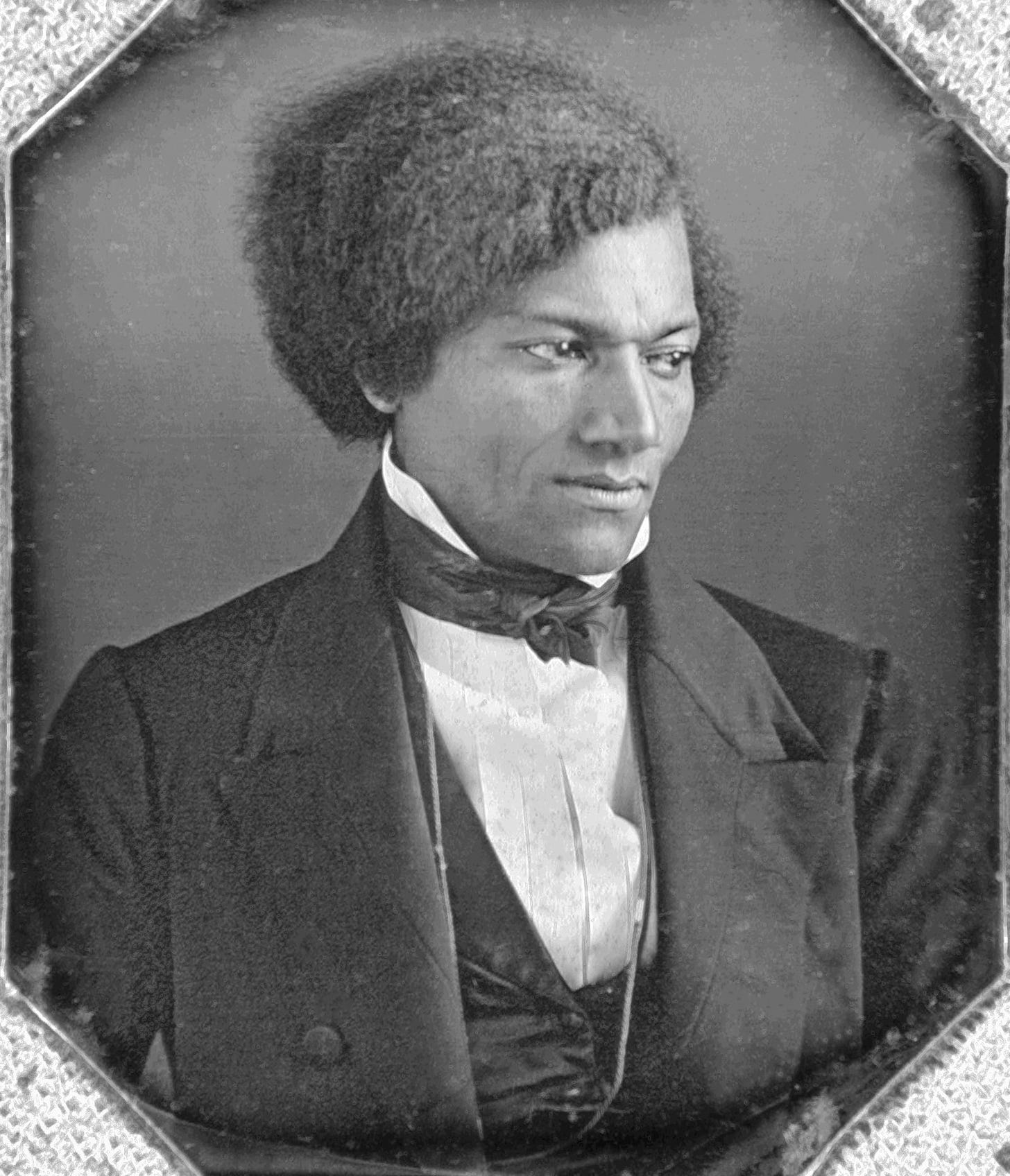TDIH: Frederick Douglass, abolitionist
“One of the most eloquent orators as well as profound thinkers of his time.”
On this day in 1895, Frederick Douglass passes away. He’d once been a slave, but he’d gone on to become one of the most noted and respected leaders in the abolitionist movement.
Indeed, Douglass has been called “one of the most eloquent orators as well as profound thinkers of his time.” He wrote several autobiographies. He worked for abolitionist causes—and for women’s suffrage. He gave numerous speeches.
Perhaps the greatest of these was delivered on July 5, 1852, in Rochester, New York. Douglass had been invited to speak on July 4, but he chose to speak the next day instead. He felt it was hypocritical to participate in 4th of July celebrations while some Americans remained enslaved.
But there may have been another reason, too.
That July 5th just happened to be the 25th anniversary of a milestone: In 1827, 4,000 black New Yorkers had marched in a parade down Broadway, celebrating the end of slavery in that state.
Douglas’s July 5th speech addressed the inconsistencies between July 4th celebrations and the institution of slavery. An early portion of Douglass’s speech is often quoted in this regard:
“What, to the American slave, is your 4th of July? I answer: a day that reveals to him, more than all other days in the year, the gross injustice and cruelty to which he is the constant victim. . . . There is not a nation on the earth guilty of practices, more shocking and bloody, than are the people of these United States, at this very hour.”
Douglass went on to detail some of the horrors of slavery, but then his speech took a surprising twist. It’s a twist that isn’t always fully reported upon.
“But I differ from those who charge this baseness on the framers of the Constitution of the United States,” Douglass told his audience. “It is a slander upon their memory, at least, so I believe.” He named several lawyers who “have, as I think, fully and clearly vindicated the Constitution from any design to support slavery . . . .”
Douglass expressed his belief that too many people had come to erroneous conclusions about the Constitution and its connections to slavery. “In that instrument,” he said, “I hold there is neither warrant, license, nor sanction of the hateful thing; but, interpreted as it ought to be interpreted, the Constitution is a GLORIOUS LIBERTY DOCUMENT. Read its preamble, consider its purposes. Is slavery among them? Is it at the gateway? or is it in the temple? It is neither.”
Douglass was speaking more than a decade before slavery would finally be outlawed for good, but he remained hopeful.
“[N]otwithstanding the dark picture I have this day presented of the state of the nation,” he concluded. “I do not despair of this country. There are forces in operation, which must inevitably work the downfall of slavery. ‘The arm of the Lord is not shortened,’ and the doom of slavery is certain. I, therefore, leave off where I began, with hope. While drawing encouragement from the Declaration of Independence, the great principles it contains, and the genius of American Institutions, my spirit is also cheered by the obvious tendencies of the age.”
One has to wonder what Douglass would think if he could see us now.
Sources can always be found on my website, here.





Frederick Douglas was a wise man but would he think that the evil thing, slavery, should now, nearly 160 years after it was abolished, continue to be a platform for reparations? Would he expect that the nation would, by now, accept blacks and whites together as equals and without continued animosity or forced preferences?
I think that he would be greatly disappointed at the progress we have made. Thank you Tara.
Thank you for this lesson Tara. May it reach far and wide. Too many don't know Mr Douglas and that is a shame. He spoke of slavery and freedom with hope. One to end and the other to be understood.